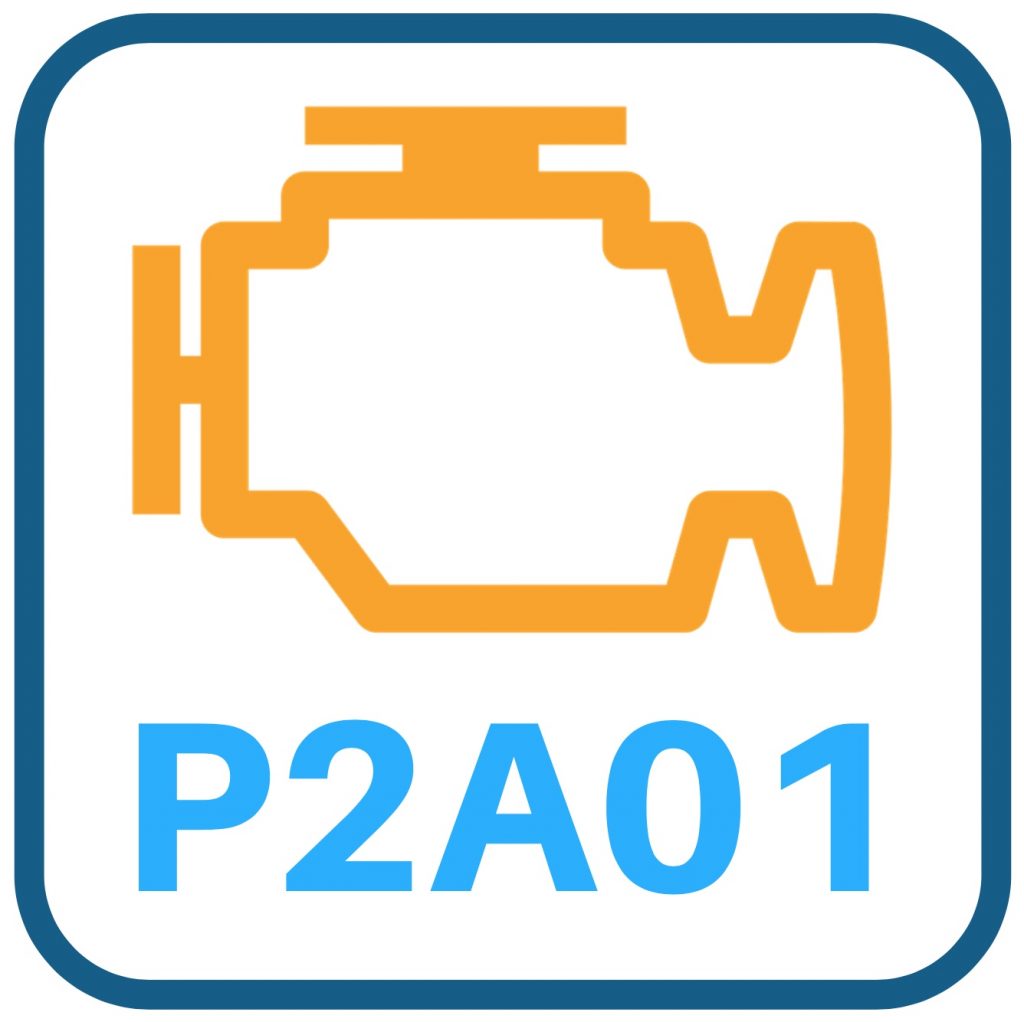P2A01 is a rare DTC trouble code. It is a general code, which means it has the same definition for the Toyota Sequoia as it would any other vehicle. P2A01 indicates that the first oxygen on the bank 2 side of the engine is sending a signal to the PCM that is outside of its normal operating range.
If your Toyota Sequoia has DTC P2A01, it is most likely caused by a bad oxygen sensor, the wiring going to the O2 sensor, or an exhaust leak. Although, there are other less likely causes as well.
P2A01 Definition

Here is the definition of P2A01, with each part of the definition broken down and explained:
O2 Sensor
Your Sequoia’s O2 sensors are responsible for measuring the exhaust content of the vehicle. This serves two purposes.
The primary purpose is to help the vehicle’s PCM adjust to the air/fuel mixture. This keeps the engine running at peak efficiency.
The secondary purpose of the oxygen sensors is to measure the exhaust content for emissions purposes.
Range/Performance
Your Sequoia will register P2A01 when the signal coming from the oxygen sensor is too high or too low for a specific period of time.
That is to say, the signal is outside of the normal operating range that the PCM should be seeing during the normal operation of the vehicle.
Bank 2
Bank 2 is the side of the engine with the second cylinder. You’ll need to determine which side of the engine has cylinder 2.
Sensor 1
Sensor 1 is the second oxygen sensor on the Bank 2 side of the engine. It is “upstream” of the catalytic converter. It’s usually on or right after your Sequoia’s exhaust manifold.
It does most of the heavy lifting in terms of engine management and tuning. The O2 sensor downstream (after) of the catalytic converter is mainly there to monitor its performance.
P2A01 Symptoms: Toyota Sequoia
The symptoms of P2A01 in the Toyota Sequoia will vary by model year and engine, but you’ll likely notice something doesn’t feel right. Here are the most common ones:
- Decreased fuel economy
- Misfiring, stalling, or hesitation
- Black exhaust
- Check engine light
Toyota Sequoia P2A01 Causes + Diagnosis

Here’s how to go about diagnosing P2A01 in your Sequoia. This diagnostic section is written in a way that you can tackle this code from home.
1. Perform a Visual Inspection
Visually inspect the wiring going to and from the B2S1 oxygen sensor. Check to see if it has any rubbing or chafing. If it does, you may need to repair the harness.
Pay particular attention to where the harness comes in contact with anything or where it is close to the exhaust. Hot exhaust ages wiring, and even after only a few years, it can become dry and brittle.
Examine the pigtail that plugs into your Sequoia’s oxygen sensor. Make sure that the pins don’t look corroded or damaged.
If they are corroded, use some electrical contact cleaner, and clean them up. If they are damaged, you’ll need to replace that part of the harness. It’s pretty easy to splice in a new portion to the harness.
2. Swap Test to Evaluate the O2 Sensor
While it may have been annoying to determine which side of the engine the first bank was on, it more than pays off when trying to determine what is causing P2A01.
That’s because, on V6 and V8 engines, you can perform the swap test. The swap test involves switching the bank one and bank two oxygen sensors. We are looking to see if the code “moves.”
If it does move, the code will change to P2A01. That is enough proof that the oxygen sensor on Bank 2 (now moved to bank 1) is bad. Replacing it should clear the code.
If the code did not change, we will have to keep going forward in our diagnosis.
Here’s how to perform the swap test:
- First, clear the DTC codes with your scanner.
- Swap your Sequoia’s Bank 2 Sensor 1 O2 sensor with the Bank 1 Sensor 1. They will be on or right after the exhaust manifold on either side.
- Run the engine until the check engine light comes back on.
- If the code changes to P2A00(which indicates the O2 sensor on Bank 2 is out of range), that is enough proof that you need a new O2 sensor.
- If the code remains P2A01, you’ll need to continue pursuing your diagnosis, knowing that both O2 sensors are working fine.
3. Other Causes
Here are other potential causes of P2A01:
- Exhaust leak
- Blown O2 sensor fuse
- Vacuum Leak
- Fuel Pressure too high or low (think fuel regulator). This would only be applicable if you were getting P2A00 as well.
4. Use a Good Scanner to Evaluate the O2 Sensor
At this point, you may need a good code scanner to evaluate what is causing P2A01. The video below can help you make sense of the data that you’ll be pulling.
Conclusion
As you can see, there are many causes of P2A01 in the Toyota Sequoia, but the most common one is a bad oxygen sensor. Doing the swap test can save you from buying an O2 sensor you don’t need or confirm that it is bad.

